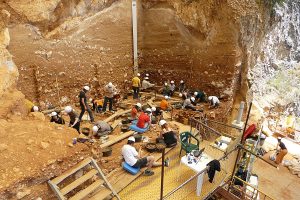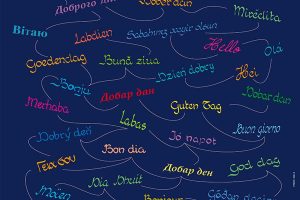Search
Humans are born rather undeveloped, compared to other species, which favours a better understanding of language and behaviour in society.
Genetics and language are closely connected. Some genes in humans have been essential for the development of complex language.
Limited adoption of development standards suggests that we still do not understand why software is so difficult to produce. Software standardisation has been limited by our poor understanding of humans’ role at the origin of technological diversity.
Early criticism of COVID-19 rhetoric cautions against the use of war metaphors that can shift us toward authoritarian and nationalistic sentiment, evoking xenophobia and racism.
What kind of sign is a rhinoceros footprint? It is an index, an iconic representation, and can become a symbolic image. A whole world condensed into a single footprint.
Interview with Charles Forceville, expert on visuals and multimodal discourse.
Anatomically modern humans represent an evolutionary, biological, and cultural synthesis of our genus. Genetics has helped us to discover and compare a multitude of hybridisations among the populations that lived and coexisted with Homo sapiens out of Africa.
Comparing the role FOXP2 plays in humans and other animals is starting to reveal common principles that may have provided building blocks for language evolution.
Interview with Maurizio Gotti, linguist at the University of Bergamo, researcher on specialised discours
We can support the idea that creativity in social and human sciences benefits more from preserving a plurality of scientific production spaces than from a single homogeneous space, which usually tends to fall into complacency.
- 1
- 2










